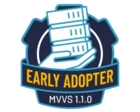I'm trying to get ssh working into a Windows 2022 system with UniVerse via openssh. It works much better than the last time I tried it, but for one problem: the escape key. The problem is that the escape key is not passed to UniVerse. I'm wondering if anyone has any suggestions or has managed to get this going?
Let me illustrate this a little. If I ssh into the Windows server, CD to a UniVerse account, and run the uv (or uvsh) command, and then run the following program:
GETKEY
0001 PRINT 'This will list the ASCII code of the key pressed until you hit "Q"'
0002 loop
0003 c = keyin()
0004 print seq(c)
0005 until c = 'Q' ! c = 'q' do repeatIt returns the ASCII code for any key I press - except for the ESC key, when it simply doesn't respond.
Curiously, the same problem occurs if I run the program after opening a UniVerse command line session using Start > Rocket U2 > UniVerse Shell (so the problem isn't exclusively related to ssh, it would seem).
Furthermore, if from the same session I go into Python and run the following, it does register when I press the ESC key (I've included what happens when I press some keys, including ESCape):
>PYTHON
python> import msvcrt
python> for i in range(5):
... print( msvcrt.getch() )
...
b'\\x1b'
b'\\x1b'
b'j'
b'd'
b'i'Anyway, I have no idea what is going on - perhaps some PTERM setting, or something else?
I'm hoping someone has a good idea to fix this!
Thanks!
------------------------------
Martin Shields
Senior Technical Consultant
Meier Business Systems PTY LTD
Carnegie VIC AU
------------------------------




